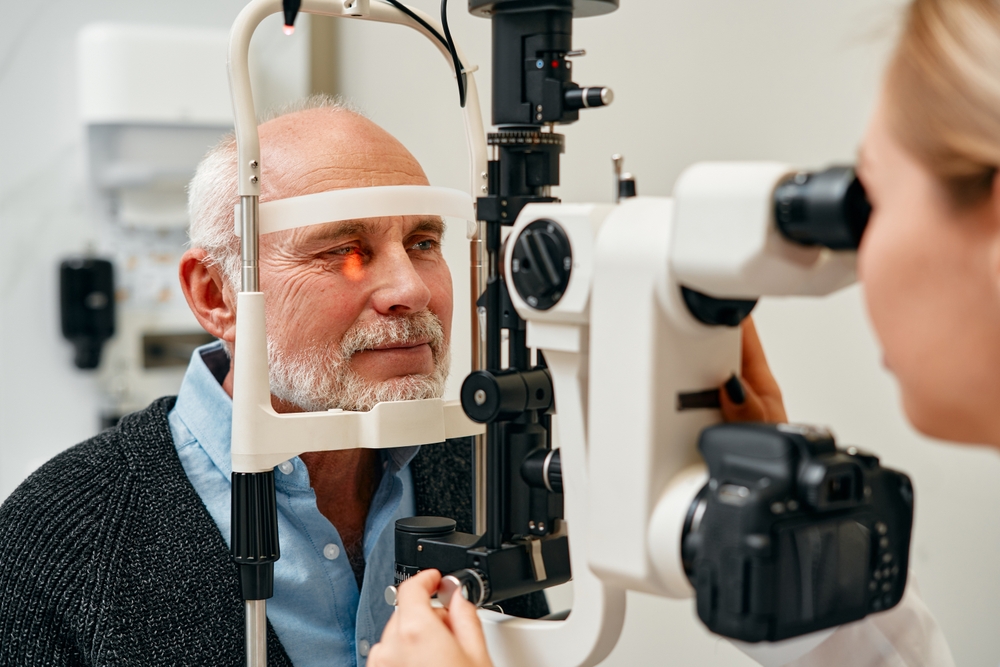What You Should Know About Diabetic Eye Disease
September 11, 2024
Do you have diabetes? Having diabetes means you should be aware of your health, but your eyes should also be part of that awareness.
In particular, if you have diabetes, you need to understand diabetic eye diseases. Diabetes, no matter the type, can negatively affect many aspects of your health.
Keeping your diabetes well-managed is vital to staying healthy, but even well-managed diabetes puts you at risk for diabetic eye disease. Diabetic eye diseases can lead to total vision loss, although you can treat them to prevent vision loss.
The best way to prevent vision loss is to be aware of the diseases you're at risk for and to see your eye doctor regularly for eye exams. Keep reading to learn what you should know about diabetic eye disease and what this can mean for your sight.
Diabetes and Your Eyes
 Diabetes is caused by an inability to either produce or utilize insulin, depending on which type of diabetes you have. Insulin carries sugar from your blood to your cells, giving them the energy they need to function.
Diabetes is caused by an inability to either produce or utilize insulin, depending on which type of diabetes you have. Insulin carries sugar from your blood to your cells, giving them the energy they need to function.
When you lack insulin, or your insulin isn't doing its job correctly, more sugar stays in your bloodstream. High blood sugar levels can damage your body, particularly your blood vessels.
The blood vessels in your eyes, particularly the ones that supply the retina, are quite small, making them more easily affected by high blood sugar levels. High blood sugar levels also increase your risk for several common age-related eye diseases.
Common Diabetic Eye Diseases
You're more likely to develop cataracts if you have diabetes. Luckily, you can treat cataracts by having cataract surgery, which removes the cataract and the natural lens where they have formed entirely.
But diabetes also increases your risk for other eye conditions that are more difficult to treat, like glaucoma. Glaucoma doesn't present any symptoms in its early stages.
Many patients don't realize they have the eye condition until permanent, irreversible vision loss has already occurred. Treating glaucoma allows you to manage the eye condition and slow down the progression of further vision loss.
But the diabetic eye disease that you're at the highest risk of developing is a direct result of having diabetes: diabetic retinopathy.
Do you think you could have a diabetic eye disease?
Schedule an appointment to keep your eyes safe
Diabetic Retinopathy
Diabetic retinopathy is an eye condition that occurs when blood vessels that supply the retina with blood grow abnormally, swell, and leak, damaging the retina. When the retina becomes significantly damaged, you'll lose vision.
Like glaucoma, there are no early symptoms. When you experience any vision loss, it is irreversible and permanent.
However, treating diabetic retinopathy can slow down further damage to the retina and preserve your remaining vision. This is why scheduling eye exams regularly with your eye doctor at OMNI Eye Specialists is crucial.
Eye exams ensure you can receive a prompt diagnosis and treatment if you have eye conditions or eye diseases.
Diabetic Eye Disease Prevention
There's no way to prevent diabetic eye diseases. Although you can lower your risk for developing these eye diseases, by having diabetes, you'll always have an elevated risk of developing diabetic eye diseases.
Some factors can increase your risk for developing diabetic eye diseases and diabetic retinopathy, including:
- Being pregnant (with gestational diabetes or pre-existing diabetes)
- Being over 50
- Having high blood pressure or high cholesterol
- Smoking
- Being of African, Hispanic, or Native American Descent
- Having poorly managed diabetes
- Having diabetes for a long time
Some of these factors are in your control. You can lead a healthy lifestyle to keep your cholesterol and blood pressure low and are vigilant about managing your diabetes.
 However, some factors are out of your control, so you should also do what you can to prevent vision loss from diabetic eye disease. The best way to preserve your vision is to schedule eye exams with your ophthalmologist regularly.
However, some factors are out of your control, so you should also do what you can to prevent vision loss from diabetic eye disease. The best way to preserve your vision is to schedule eye exams with your ophthalmologist regularly.
You may not be able to notice diabetic retinopathy or glaucoma in their early stages, but your eye doctor can detect early signs of these diseases through an eye exam. The earlier the disease is diagnosed, the sooner you can receive treatment.
Although treatment cannot reverse the damage that has already occurred, it can prevent further damage. When diabetic eye diseases are detected early, you can preserve your vision for many years to come.
How often you need eye exams depends on your exact risk for diabetic eye diseases and other eye conditions. Talk to your eye doctor about how often you should schedule eye exams to determine the most appropriate schedule to follow.
However, when you should have eye exams also depends on age, family history, and other factors. If you're considered at an increased risk of eye conditions, having eye exams at least once a year is best. If you find out you have an eye condition, seeing your eye doctor for an eye exam is your best defense and will ensure prompt treatment.
Diabetic Eye Disease Management
Diabetic eye diseases are treatable. Although they have no cure, they can be slowed down with proper management to prevent further vision loss.
There are many different treatments for glaucoma, from eye drops to laser therapy to surgical procedures. Diabetic retinopathy is usually treated primarily with anti-VEGF injections.
Anti-VEGF injections contain a chemical that inhibits new blood vessel growth. This prevents more blood vessels from growing under the retina and damaging it by swelling and leaking.
There are also laser therapies that can cut off leaking blood vessels. Your exact treatment plan for diabetic eye disease will depend on your unique case and will be designed by your ophthalmologist.
But the first step to treatment is diagnosis, so don't forget to schedule eye exams regularly.
Do you need to learn more about diabetic eye diseases? Schedule an appointment today at OMNI Eye Specialists in Baltimore, Rosedale, and Glen Burnie, MD, today!



